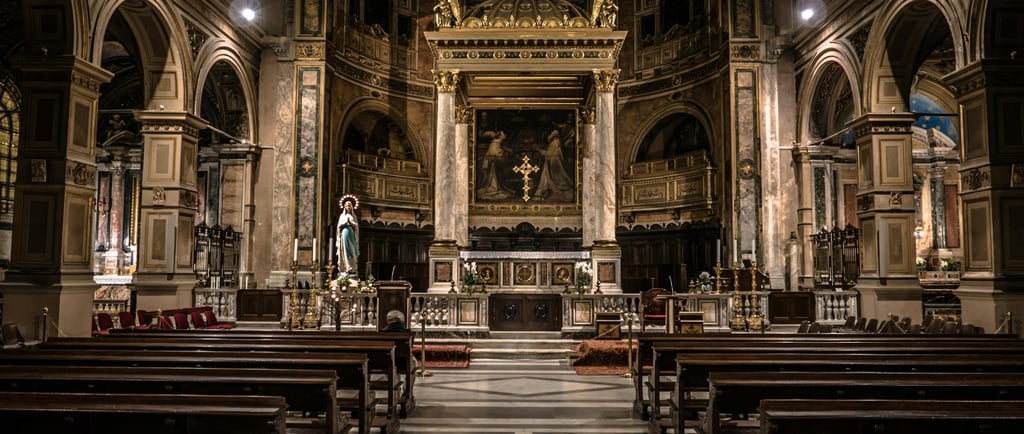Respecting Sacred Spaces While Traveling
Learn how to help clients respectfully visit sacred spaces with this expert guide packed with essential travel agent tools. Improve client experiences, cultural awareness, and your professional edge.
7/3/20254 min read


Respecting sacred spaces around the world is more than just good travel etiquette—it is a crucial component of ethical, immersive, and culturally aware travel. For travel agents, cultivating this awareness in their clients is not only a sign of professionalism but also a key way to build trust, foster loyalty, and elevate the quality of the experiences they curate. In this article, we explore how incorporating guidance on sacred site etiquette into your suite of travel agent tools can benefit your clients, the communities they visit, and your business as a whole.
What Are Sacred Spaces?
Sacred spaces are locations imbued with spiritual, religious, or cultural significance. These can include temples, mosques, churches, shrines, burial grounds, ceremonial sites, and even natural features like mountains, lakes, and forests. Often, these places are actively used for worship and hold deep meaning to local communities.
Understanding what makes a site sacred requires cultural sensitivity and context. For example:
The Western Wall in Jerusalem is a holy site for Jews worldwide.
Uluru in Australia is sacred to the Anangu people, its traditional custodians.
The Ganges River in India is venerated by Hindus for its spiritual purity.
Kyoto’s many shrines and temples operate as both historical sites and active places of worship.
Using travel agent tools that incorporate context-specific sacred site knowledge not only educates travelers but also sets a higher standard of professionalism for your services.
Common Missteps Travelers Make
Clients may unknowingly commit acts of disrespect, such as:
Wearing revealing clothing at religious sites.
Photographing ceremonies without permission.
Walking on prayer mats or entering spaces meant only for locals.
Speaking loudly or behaving casually.
Educating clients in advance, using your arsenal of travel agent tools, avoids cultural faux pas and enhances their overall experience. When travelers are prepared to engage respectfully, they form more authentic and memorable connections with the places they visit.
Why This Matters to Travel Agents
1. Reputation Building
Agents who equip clients with cultural knowledge position themselves as thoughtful and professional. This added value differentiates you from transactional booking agents.
2. Higher Client Satisfaction
Clients who understand the significance of sacred spaces often report more fulfilling trips. They return with stories of connection rather than regret or embarrassment.
3. Repeat Business and Referrals
Clients are more likely to return to a travel professional who equipped them to engage meaningfully with other cultures. Travel agent tools that offer cultural sensitivity checklists or pre-departure guides can leave lasting impressions.
4. Better Partnerships with Local Guides
Respectful travelers make the job of local partners easier. This improves your relationships with on-the-ground providers and can lead to better services or exclusive opportunities for your clients.
Best Practices for Clients Visiting Sacred Spaces
Use your travel agent tools to communicate these clear, actionable tips:
1. Dress Modestly
Encourage clients to carry lightweight wraps or scarves, especially when visiting religious sites in warm climates.
2. Remove Shoes When Appropriate
Many temples, mosques, and shrines require shoe removal. Let your clients know in advance to wear easy slip-ons.
3. Don’t Assume Photography Is Allowed
Some sacred spaces prohibit photography entirely. Others allow it only in specific areas. Include this guidance in your travel agent tools and prep documents.
4. Maintain Silence or Speak Softly
Respect the ambiance. Clients should mute devices, avoid loud conversations, and absorb the atmosphere quietly.
5. Follow the Locals’ Lead
If unsure of how to behave, travelers should observe and mirror the behavior of worshippers and locals.
6. Never Touch Sacred Objects or Altars
Remind clients that items like prayer wheels, altars, and statues are not tourist props—they are holy to those who use them.
7. Be Mindful During Ceremonies
If your clients witness a religious ritual, teach them to observe from a respectful distance unless invited to join.
Incorporating these tips into your customized travel agent tools can create well-prepared, respectful travelers who are better guests and global citizens.
Sacred Space Sensitivity by Region
South Asia:
Temples in India, Nepal, and Sri Lanka often have strict dress codes. Head coverings are sometimes required. Most sites have areas where photography is strictly prohibited.
Middle East:
Mosques require modest attire, and non-Muslims are restricted from entering certain areas. Use travel agent tools to identify sites that allow tourists and offer structured visits.
Southeast Asia:
Many Buddhist temples have rules about pointing feet toward Buddha statues or stepping over thresholds.
Europe:
While cathedrals and churches may seem more accessible, many are active places of worship. Clients should avoid disruptive behavior during Mass or services.
Indigenous Lands Worldwide:
Sites like Mauna Kea (Hawai’i), Machu Picchu (Peru), and the Black Hills (U.S.) often require cultural context and consent to access. Some areas should not be visited at all.
Including cultural briefings by region in your travel agent tools ensures clients don’t make well-intentioned but harmful mistakes.
How to Deliver This Information to Clients
Use the following methods, ideally integrated into your broader travel agent tools:
Digital Welcome Kits: Include cultural do’s and don’ts.
Pre-Trip Email Series: Send a sacred space etiquette tip each day leading up to departure.
Downloadable Packing Lists: Include temple attire or reminders about headscarves.
In-App Notifications (if applicable): Pop-up reminders before key excursions.
The more embedded this guidance is in your client experience, the more seamless and meaningful the trip will feel.
Why It Matters for the World
When travelers respect sacred spaces:
Local communities feel seen and validated, not exploited.
Cultural heritage is preserved and honored.
Negative impacts of tourism—disrespect, overexposure, degradation—are reduced.
You’re not just using travel agent tools to provide better service. You’re helping steward the future of global travel.
Final Thoughts
Educating clients on how to respect sacred spaces is not just thoughtful—it’s essential. And when this knowledge is delivered through well-curated travel agent tools, it enhances the value of your service, deepens the travel experience, and contributes positively to the world.
By investing in education, context, and preparation, travel agents can create journeys that do more than move people—they transform them.
We Offer Free Design Samples
Improve your travel agency with our pre-travel preparation tools
